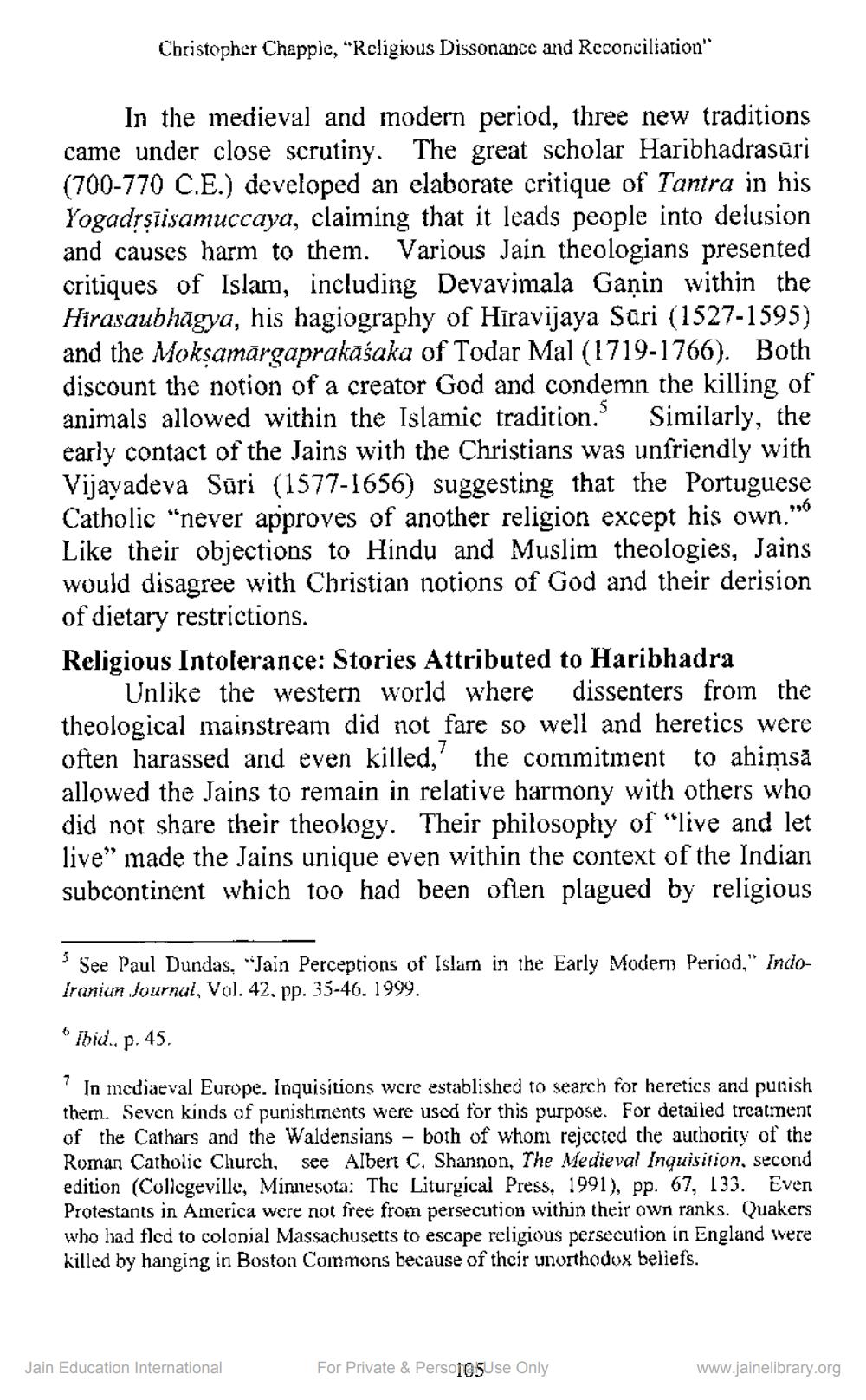Book Title: Religious Dissonance and Reconciliation The Haribhadra Story Author(s): Christopher Key Chapple Publisher: Z_Lessons_of_Ahimsa_and_Anekanta_for_Contemporary_Life_014006.pdf View full book textPage 4
________________ Christopher Chapple, "Religious Dissonance and Reconciliation" In the medieval and modern period, three new traditions came under close scrutiny. The great scholar Haribhadrasūri (700-770 C.E.) developed an elaborate critique of Tantra in his Yogadṛṣiisamuccaya, claiming that it leads people into delusion and causes harm to them. Various Jain theologians presented critiques of Islam, including Devavimala Ganin within the Hirasaubhagya, his hagiography of Hiravijaya Sūri (1527-1595) and the Mokṣamargaprakasaka of Todar Mal (1719-1766). Both discount the notion of a creator God and condemn the killing of animals allowed within the Islamic tradition. Similarly, the early contact of the Jains with the Christians was unfriendly with Vijayadeva Suri (1577-1656) suggesting that the Portuguese Catholic "never approves of another religion except his own.' Like their objections to Hindu and Muslim theologies, Jains would disagree with Christian notions of God and their derision of dietary restrictions. 5 1,6 Religious Intolerance: Stories Attributed to Haribhadra Unlike the western world where dissenters from the theological mainstream did not fare so well and heretics were often harassed and even killed, the commitment to ahimsa allowed the Jains to remain in relative harmony with others who did not share their theology. Their philosophy of "live and let live" made the Jains unique even within the context of the Indian subcontinent which too had been often plagued by religious 5 See Paul Dundas, "Jain Perceptions of Islam in the Early Modern Period." IndoIranian Journal, Vol. 42, pp. 35-46. 1999. 6 Ibid.. p. 45. 7 In mediaeval Europe. Inquisitions were established to search for heretics and punish them. Seven kinds of punishments were used for this purpose. For detailed treatment of the Cathars and the Waldensians both of whom rejected the authority of the Roman Catholic Church, see Albert C. Shannon, The Medieval Inquisition, second edition (Collegeville, Minnesota: The Liturgical Press, 1991), pp. 67, 133. Even Protestants in America were not free from persecution within their own ranks. Quakers who had fled to colonial Massachusetts to escape religious persecution in England were killed by hanging in Boston Commons because of their unorthodox beliefs. Jain Education International - For Private & Perso105Use Only www.jainelibrary.orgPage Navigation
1 2 3 4 5 6 7 8 9 10 11 12 13 14 15 16
